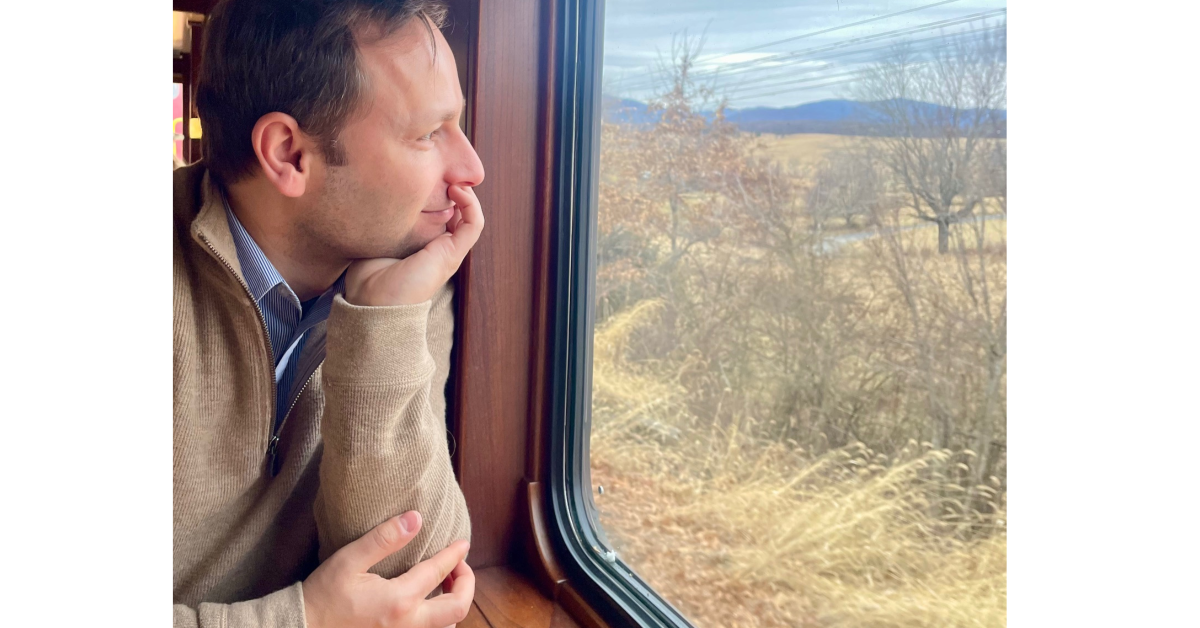Responses were edited for clarity and conciseness.
Give a 1-minute elevator pitch of your current research project.
My dissertation focuses on non-fatal opioid overdoses and specifically linkage to care after those events, which usually begin with EMS or first responders. Ideally, EMS and other first responders serve as the first line of action and can bring someone suffering from an overdose to the hospital to get treatment. Unfortunately, this doesn’t always play out, and many people end up becoming disengaged or lost through the system. My overall objective is to look at the factors that are associated with service receipt by people experiencing non-fatal overdoses at critical points of care.
What motivated you to focus on the topic post-overdose treatment and care?
Before coming to Hopkins, I worked as an analyst for RAND Corporation, where I focused on the intersection between health policy, criminal justice, and social policy. One interest I developed was the interaction between various policy systems, and I find that these intersections tend to be where problems are found, as it’s not often clear who is supposed to do what. There are a lot of gaps, but there are also a lot of opportunities to find ways to help fix something. Non-fatal overdoses are a unique situation where a lot of systems intersect, and researching this topic is an opportunity to really make a difference.
What’s something that excites you most about your project?
One crucial juncture that my research explores is when, why, and how people reject EMS and first responder services after a non-fatal overdose. In a recent paper, my co-authors and I analyzed data on these instances throughout 2021 – 2022, and I’m excited to be building upon these findings in my dissertation. I am also excited to work with large datasets and get better at quantitative analysis. In one part of my project, I will be working with Medicaid claims data, which is an important skill.
What is something interesting you’ve come across during your research?
The rate at which people are rejecting EMS and first responders is on the rise, especially when compared to previous studies. Some of the differences in data may be due to methodological differences, but even accounting for that and taking conservative estimates, there seems to be a significant increase in rejections of care. It seems like things are getting harder for first responders and healthcare workers to engage with people who experience non-fatal overdoses. What’s exciting is that the data we’ve collected so far confirm that this is a problem that must be looked at.
Transitioning to your research and educational journey, what led you to doing research at JHBSPH? How have your experiences working with RAND influenced your decision to pursue a PhD?
I wanted to do much more training on quantitative methods. At RAND, much of my focus was qualitative, so I wanted to become a more balanced researcher. I felt it would be beneficial to have a systematic, dedicated time to build those skills. More importantly, I wanted to get more agency as a researcher and become more independent. I had an amazing experience at RAND and with my colleagues, but without a PhD I was limited in the extent to which I could take a more research leadership role given the sources of our funding. I hope to be able to become an independent policy researcher working on the intersection of various policy systems.
You’ve had previous educational experience in the United Kingdom, having received your masters’ there. How has that time informed your perspective on public health in the United States?
I think something the US can improve upon is making it more customary to look at programs and systems implemented elsewhere. There are a lot of things that are unique to the US, especially the healthcare system, but I think there are still opportunities to learn more about what’s being done elsewhere. One thing I worked on in the UK was looking at all the programs implemented by (then other) EU countries. Learning about how other countries tackled their issues was a great asset, and I think it would be good to do so in the US as well.
How do you hope that your research will impact future policies around overdose treatment and care?
I hope that we can identify factors that affect care engagement and quality. There can be policy changes that influence these factors, but it doesn’t have to be a formal written document. I hope there can be changes both within the letter of the law and with how people organize and implement their intervention strategies. Right now, there’s an information gap in this field, and I hope I can contribute to shedding some light on what can be improved.
What is some advice you would give to yourself from 5 years ago?
At that time, I was still considering whether to apply for a PhD. Now that I’m here, I would encourage my past self to take the leap. I was lucky to be at the tail end of COVID, so my program was not as affected. I’m also lucky that my wife was very supportive of me during that time, and none of this would have been possible without her.
What do you like to do in your free time?
I enjoy travelling and spending quality time with my friends. I think sometimes being a PhD student can be a very solo experience, but I spend time with my wife and friends whenever possible. I also enjoy eating out and trying new things.
Finally, do you have any book recommendations?
Unfortunately, I don’t read much fiction these days. I do keep up with a Czech magazine from my hometown, and I do enjoy a good cookbook!
